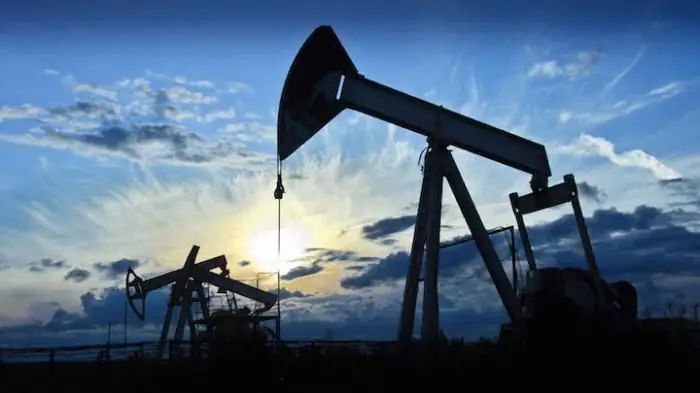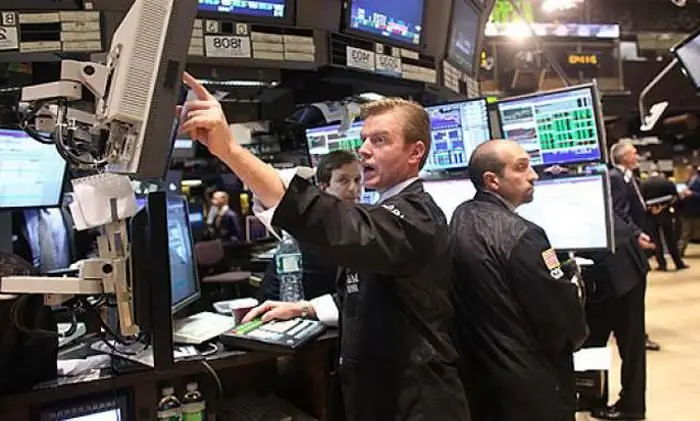2026 Author: Howard Calhoun | calhoun@techconfronts.com. Last modified: 2025-01-24 13:10:39
Those who have recently started trading in the Forex market, the first thing they do is look for good tutorials and watch miles of videos. Unfortunately, not all of them form a correct idea of the market functioning mechanism. So, many "gurus" of trading impose the idea that the market maker is the main rival of the trader, who strives to take away all his profits and capital. Is it really? Let's try to figure out what happens when we create a new Buy or Sell order.

A market maker is… Definition
By definition, a market maker is a kind of financial institution whose main responsibility is to provide liquidity in the market. This role is usually played by large or national banks, as well as brokerage companies, which are strictly subject to established financial legislation. Literally "market maker" ismarket maker. And in fact, the way it is, because without sufficient liquidity, no market can exist.
Functions of the main participant in the Forex market
If the main task of large brokers and banks is to provide liquidity for exchange operations, then, based on this, their functions are determined. If there is a shortage of a certain type of currency, MM is obliged to go to other liquidity providers. To do this, his clients' orders for the purchase of a certain currency are displayed at the interbank level. The same is done if MM does not want to bear the risks for making foreign exchange transactions involving its own money.
If there is no liquidity on the market, that is, there are no counterparties who want to conduct a reverse transaction, for example, to sell the currency that a bank client wants to buy, then this financial institution is obliged to provide cash from its own reserves or independently make a reverse transaction at the international level.

Main Market Participants
The influence of market makers has grown strongly since the emergence of the international Forex market with its huge turnover, which, according to very rough estimates, covers contracts worth about 5 trillion dollars a day. The lion's share of all operations falls on large participants. We can say that a market maker is the main participant in the Forex market, without which there would be no market.
It is a mistake to think that there is one invisible person in the market, who is pulling the strings, sitting somewhere up there. In fact, there are manyForex market makers who regulate individual markets for a particular currency. For example, the American Citybank, whose trading volumes exceed those of all other similar institutions, has a huge impact on the US dollar. The German Deutsche Bank is slightly behind, followed by the English RBS and the Swiss UBS. These four banks provide 50% of all trading on the international currency exchange.
Interbank trading
None of the ordinary traders are able to independently enter the interbank market, because the standard pool there is 5 million dollars. Even far from many banks are able to invest such an amount in trade. Therefore, large prime brokers collect several such orders to process one large order on the interbank market. A prime broker is understood as an organization that has direct access to the interbank level. A level down are retail brokers, which are the intermediaries between private small traders or organizations wishing to buy currency and large prime brokers.

Retail broker profit
Brokers are divided into two categories: A-brokers or A-Book, and B-brokers B-Book.
In the first case, all transactions of the broker's clients go through the interbank market, and the broker is only an intermediary. His profit in this scheme is commission to the main spread. The more successful the operations, the more profitable it is for the broker who works according to scheme A. That is, he willinterested in the success of their traders.
The situation is different where the process is organized according to scheme B. Here, the vast majority of transactions are made inside the brokerage house, so the client's loss is the main profit. Such brokers are also called dealing centers, and in the post-Soviet space - "kitchens".

Big money
In order to better understand the market and trade successfully on it, many experienced traders recommend understanding the market maker strategy. How it works and why. For example, there is a widespread misconception that the market maker almost specifically hunts for the money of small traders in order to take them away. This is both so and not so at the same time, even when it comes to "kitchen". After all, a retail broker cannot independently change quotes, and real big money is busy with something else - providing liquidity for their clients.
In fact, it is important for MM to get this liquidity in any way possible and, preferably, with minimal effort, that is, without a sharp price change. And if applications for opening or closing market orders have accumulated in some place, the main market participant will definitely go there to get additional cash, which he does not have enough to execute counter orders. That's why it's important to understand who market makers are and how they trade.

How to predict the actions of a market maker
Looking at the price chart, experienced traders can calculatebalance of power and determine who is more on the market, buyers or sellers. Depending on this, it is not difficult to predict the further actions of the so-called "big money". In order not to be eaten by market monsters, you need to be able to adjust, take the direction of price movement that is currently beneficial for the market maker. And in time to stand with him in the same direction.
This is the so-called trading with a market maker. Those who have learned to think like MM and predict his further actions are always in the black. It is important to understand that these financial structures are not intended to manipulate prices in order to take your money. Their main function is to ensure the liquidity of the asset. And the market maker acts strictly in accordance with its tasks. And the fact that small traders fall under his ice rink is the result of their own negligence, inattention or frivolous attitude to the market.
Recommended:
Trade union - what is it? Russian trade unions. Law on Trade Unions

Today, the trade union is the only organization designed to fully represent and protect the rights and interests of employees of enterprises. And also able to help the company itself control labor safety, resolve labor disputes, etc
Work permit for work in electrical installations. Rules for work in electrical installations. Work permit

From August 2014, Law No. 328n comes into force. In accordance with it, a new edition of the "Rules on labor protection during the operation of electrical installations" is being introduced
Why does the ruble depend on oil and not on gas or gold? Why does the ruble exchange rate depend on the price of oil, but the dollar exchange rate does not?

Many in our country are wondering why the ruble depends on oil. Why is it that if the price of black gold decreases, the price of imported goods rises, is it more difficult to get out to rest abroad? At the same time, the national currency becomes less valuable, and with it, all savings
On what days does Sberbank work: weekends and holidays, working hours, technical break times and feedback from bank customers

Sberbank has the widest branch network in Russia. Despite the fact that many customers use only online products, even cardholders have the need to visit a branch, for example, to replace the card at the end of the term. To do this, customers should know what days Sberbank works
Profession "image maker": description, pros and cons. Where to study as an image maker?

Now one of the most popular professions is an image maker. Of course, the speci alty has both pluses and minuses. But a professional image maker not only earns very decently, but also helps people solve problems with work and personal life

